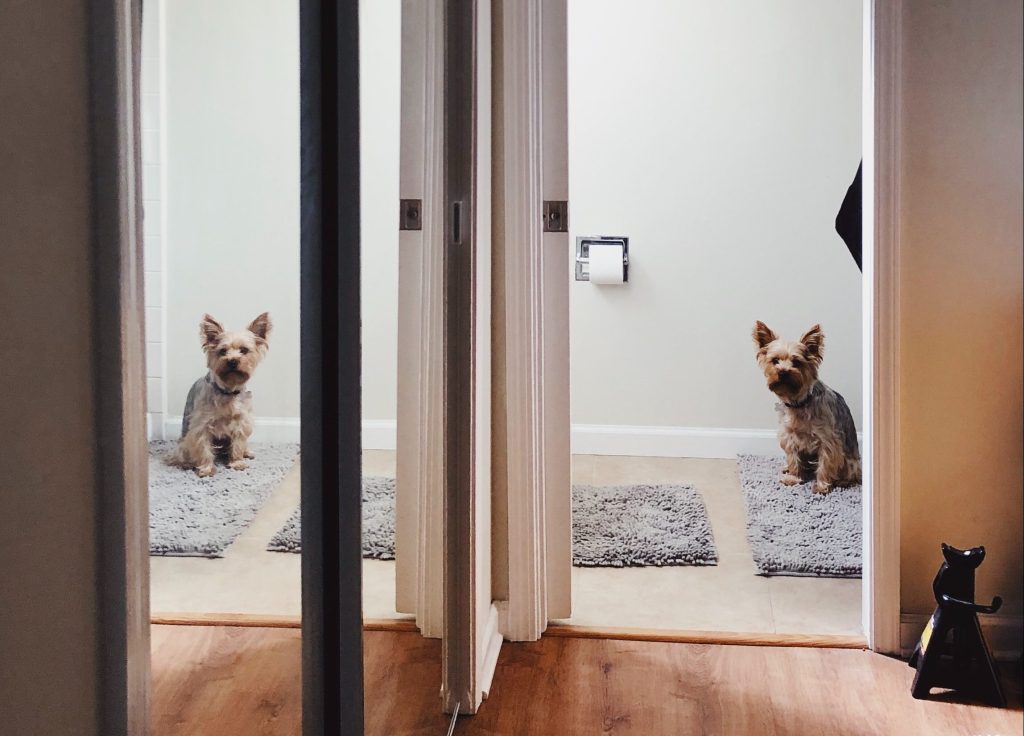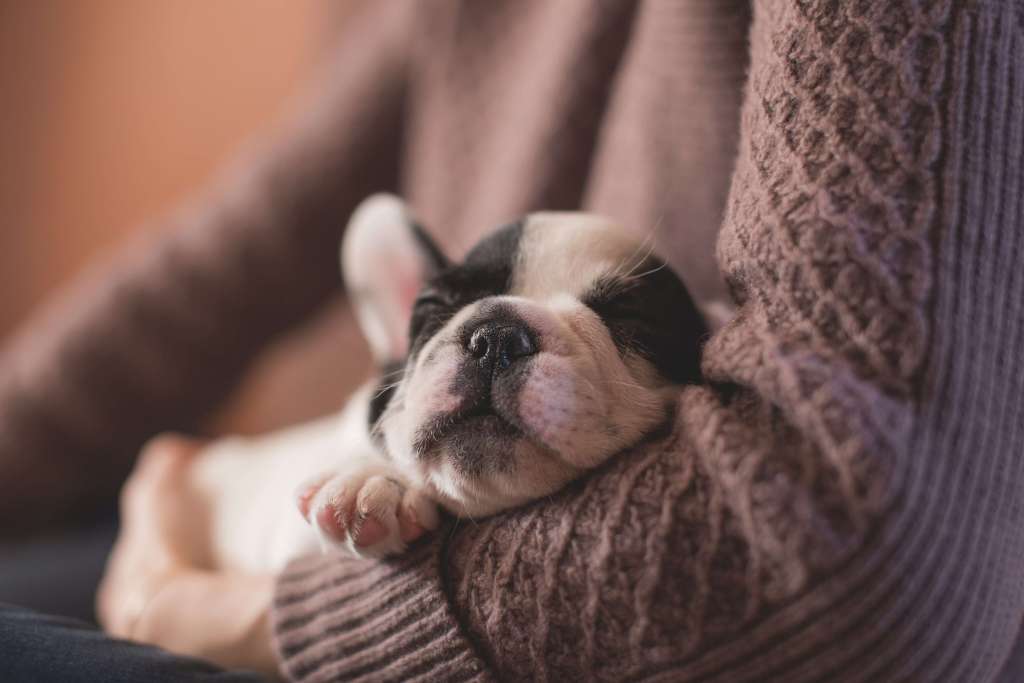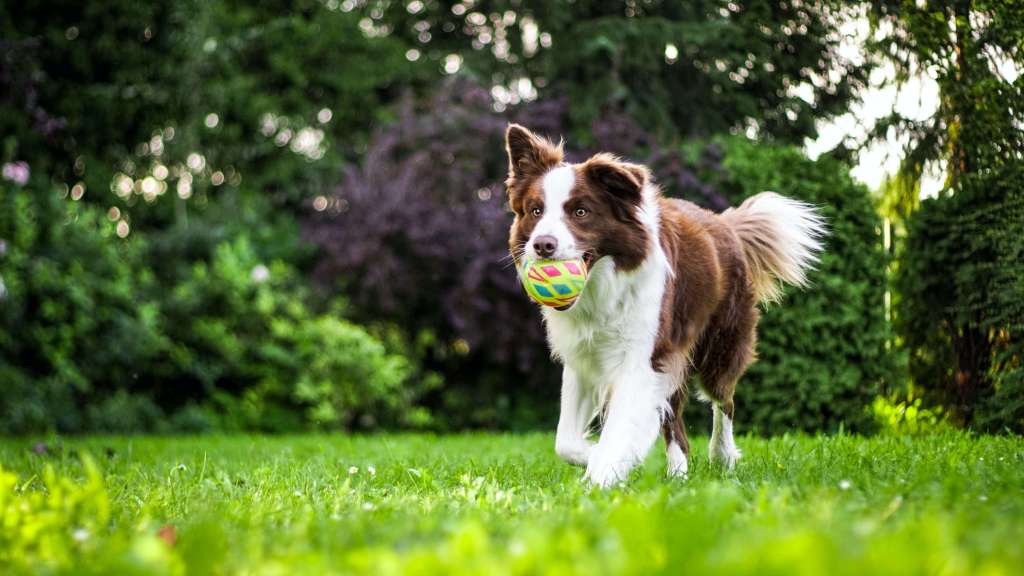Have you noticed that your dog has been licking its paws repeatedly? There are many reasons as to why your dog may be licking its paws. It could be due to injury, skin issues, allergies, skin lesions, illness, boredom, and even anxiety. People commonly ask, “Why does my dog lick its paws?”
It is normal for dogs to lick their paws on occasion as part of a healthy grooming routine. You may notice that your dog likes to lick its paws when it comes back inside from a walk. This is your dog’s way of cleaning itself after being outside. Even though occasional paw licking is a normal activity, a healthy dog should not be licking its paw excessively. If your dog has a history of excessive paw licking, it may be something of concern that requires veterinary intervention and treatment; constant foot licking can be a sign of an underlying health issue.
Excessive paw licking due to injury
Have you round yourself asking, “Why does my dog lick his paws so much?” If you notice that your dog has all of a sudden begun licking one of its paws excessively, it may be a sign of injury. The first thing that you should do is examine the paw to ensure that there is no injury or a foreign body such as a thorn, cut, torn nail, skin irritation, or even a rock that has become lodged in the paw pad. It is important to also examine between the dog’s toes and pads to ensure you are not missing something.
If you do not notice anything, your dog may have stepped on something sharp outside or may even have been stung by a bee. These issues can typically be treated with simple first aid and do not usually require veterinary intervention or treatment. However, if you notice that your dog has a visible wound, it is best to take him to the vet to avoid an infection developing in his paw.
Paw licking due to food allergies
Like humans, dogs can also be allergic to certain foods. This allergy can present itself in a variety of ways; however, paw licking is one of the most common symptoms of allergies in dogs. In dogs, food allergies are particularly difficult to diagnose as there is no simple test to determine what the dog is allergic to.
To determine what your dog may be allergic to, the veterinarian may recommend you place your dog on a special diet or an elimination diet. An elimination diet involves simplifying the food that the dog is eating and then slowly reintroducing food items to see what is causing the allergic reaction. The vet may also recommend switching to a raw food diet to see if the constant licking subsides. Dogs can also suffer from environmental allergies; the symptoms of environmental allergies are often similar to other food and skin allergies.
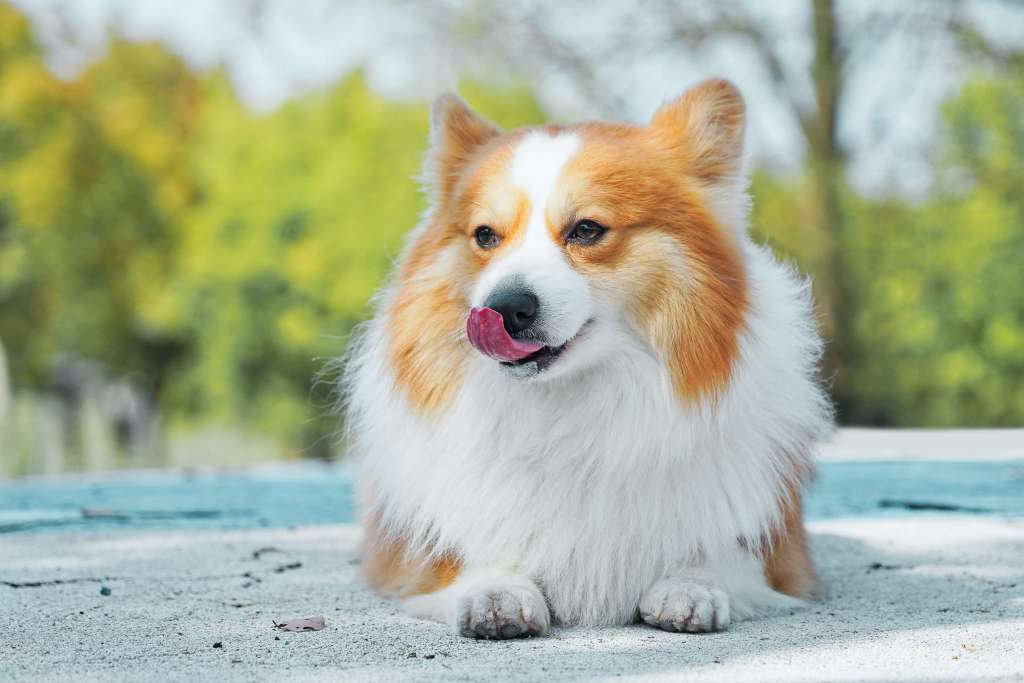
Bacterial infection or yeast infection
Another common cause of excessive licking in dogs is infection. The most common infections include bacterial or yeast infections. A bacterial skin infection usually develops when the skin is damaged, or the paw pad is injured in some way. The presence of a bacterial infection is usually marked by redness, hair loss, and flaky skin. If you believe your dog is suffering from a bacterial infection, it is important to take him to the vet to receive proper treatment and medication. If left untreated, the infection can become worse and cause the dog greater pain and discomfort.
How do you know if your dog has a yeast infection on its paws? Another common type of infection in dogs is a yeast infection. When yeast is allowed to overgrow, it can cause itchiness and a strong odor. Most often, the vet will prescribe a medicated dog shampoo along with wipes that have antifungal medication. These medications will help control the amount of yeast on the dog’s skin and reduce the dog’s symptoms.
Excessive paw licking from fleas and ticks
Fleas and ticks are another common reason that your dog may be licking its paws excessively. Ticks are very small parasites that can easily spread diseases and infections within dogs. Ticks burrow their heads into the dog’s skin and begin to suck the dog’s blood. Some ticks carry infection and Lyme disease, which can cause additional health problems if left untreated.
Some dogs can also be allergic to tick and flea saliva. This saliva causes an immune response within the dog which produces an itchy sensation and itchy skin. This sensation, called flea allergy dermatitis, can also cause your dog to excessively lick its paws. To prevent flea and ticks from attacking your dog, you should use flea and tick repellent on a regular basis. Your veterinarian will be able to recommend the best flea and tick prevention for your dog, keeping his health in mind.
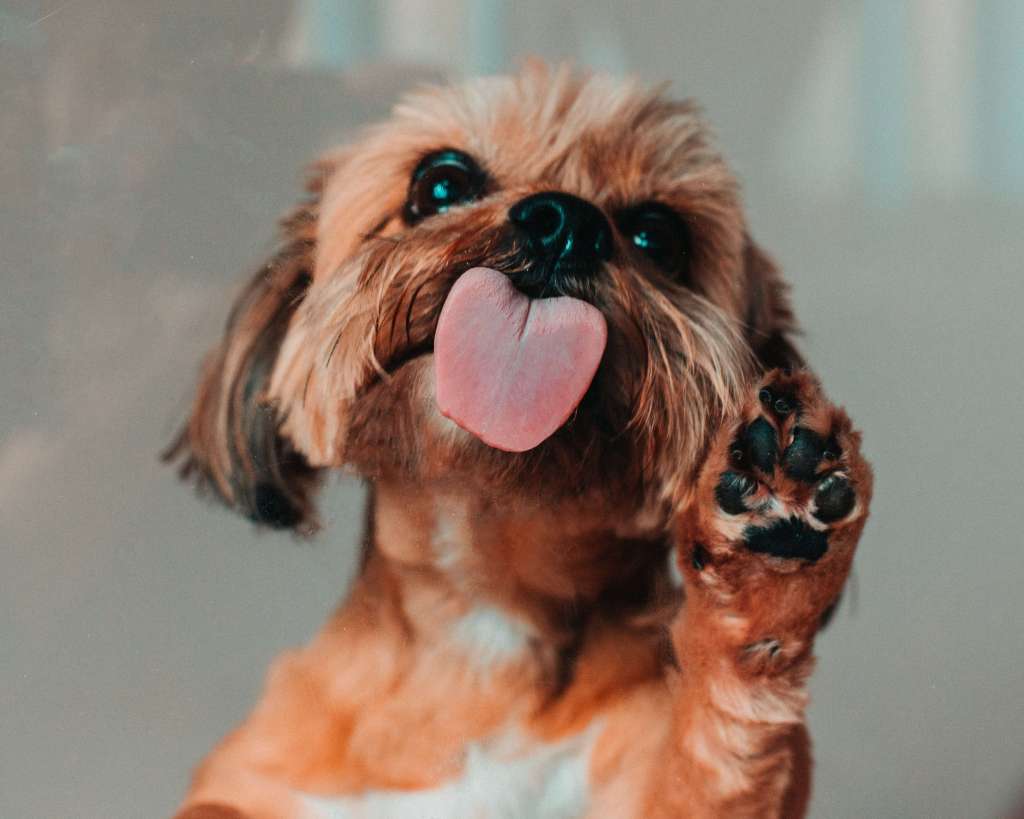
Excessive paw licking due to boredom and anxiety
If, after meeting with your vet, there are no visible signs of trauma or infection, then your dog may be suffering from behavioral problems, including boredom and anxiety. This is often more difficult to diagnose as there are no common physical signs to look for. Oftentimes, dogs will develop repetitive licking to cope with separation anxiety and lack of affection. Separation anxiety usually occurs when a dog is left alone for long periods of time.
One of the best ways to help alleviate boredom within your dog along with separation anxiety, is to take your dog on walks before you leave the house. In addition, you should ensure that your dog receives the appropriate amount of exercise depending on its size, age, and breed. When you leave the house, be sure that your dog has plenty of things to play with. This can include mental stimulation games like canine puzzles and even just a few dog-safe chew toys.
If your dog’s anxiety symptoms are particularly severe, the vet may recommend some calming medication or calming treats to decrease your dog’s anxiety symptoms. One treatment that has been found to be effective in decreasing anxiety in dogs is CBD oil. Your vet will be able to recommend the best option for your dog’s behavioral issues and help prevent the compulsive behavior. Your vet may even recommend that you see an animal behaviorist as they specialize in obsessive-compulsive disorders.
How to protect your dog’s paws
So how do you get your dog to stop licking its paws? There are some steps and home remedies that you can take to ensure that your dog’s paws stay in optimal condition:
Check your dog’s paws daily
The first thing you should do is check your dog’s paws daily. By checking your dog’s paws daily, you will be able to detect any issues early on and prevent problems from developing any further. When checking your dog’s paws, be sure to check the tops and bottoms, in between the toes and paw pads, and the toenails. While doing this, look for any sign of irritation or injury.
Use protective dog boots
During the cold winter months, it is important to keep your dog’s paws protected from the cold. When walking in the snow, you should cover your dog’s paws with protective boots. This prevents the dog from developing frostbite and infection.
In addition to using protective dog boots in the winter, you should be cautious when walking your dog in the warm summer months. Outdoor surface temperatures can easily reach over 100 degrees and higher, causing extreme burns on your dog’s paws. Before going for a walk with your dog in the summer, feel the surface of the sidewalk or road with the back of your hand. If it is too hot for you to stand, it is definitely too hot for your dog.
Keep your dog’s nails trimmed and clean
Keeping your dog’s nails trimmed ensures that the nail does not become overgrown and cause pain when the dog walks. Overgrown nails can rub against the dog’s paw pads and cause irritation and infection to develop. Which then leads to chronic licking of the paws.
In addition, you should ensure that your dog’s paws are always clean and free of debris. You should wash your dog’s paws or wipe them off with a washcloth after every walk or outdoor adventure. This ensures that the dog’s paws stay clean and it prevents outdoor allergens from sticking to the dog’s paws. Your dog may also be suffering from dry skin. Dry skin can be treated by using a paw pad moisturizer that is prescribed by your vet.
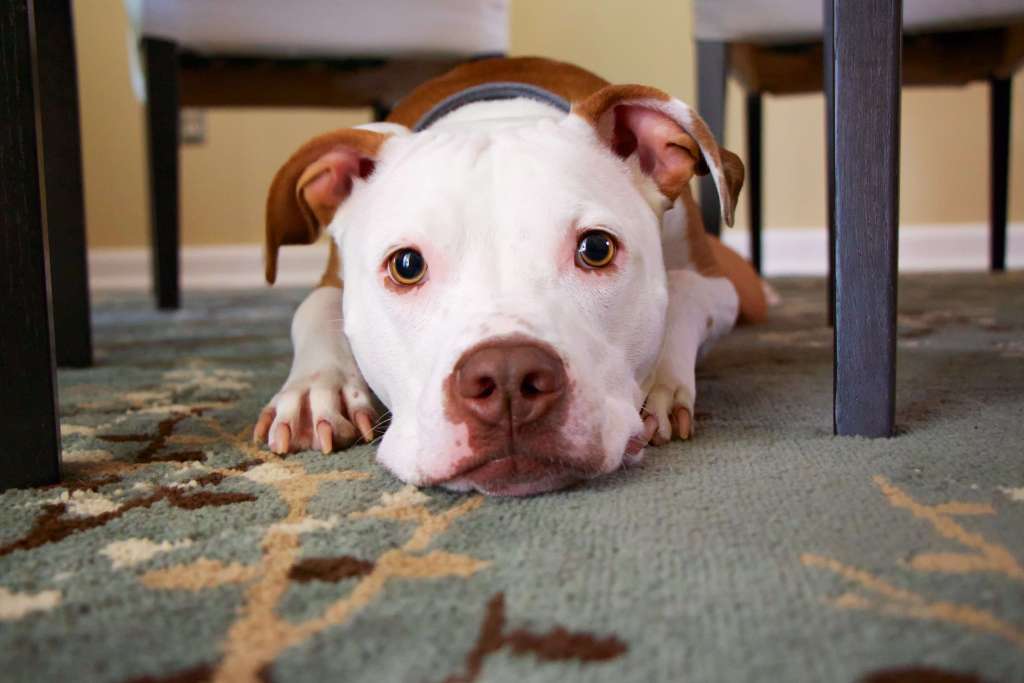
Why is your dog licking its paws?
The cause of frequent licking is not always simple. It often requires veterinary intervention to determine what the exact cause is as well as the best treatment option. As we have discussed, there are a number of reasons that can lead to excessive paw licking. While it is a common behavior for dogs to groom themselves with occasional licking, it can also be a sign of a more serious issue.
Excessive licking can be a sign of injury, allergies, secondary infection, boredom and anxiety, and parasitic infection. In the end, if you are concerned about your dog’s health, you should seek the help of a veterinarian immediately. A vet will be able to provide you with a thorough diagnosis along with the best treatment plan for your dog. This will finally allow you to answer your question, “Why does my dog lick its paws?”
Connect With Us!
Get new content delivered directly to your inbox.


